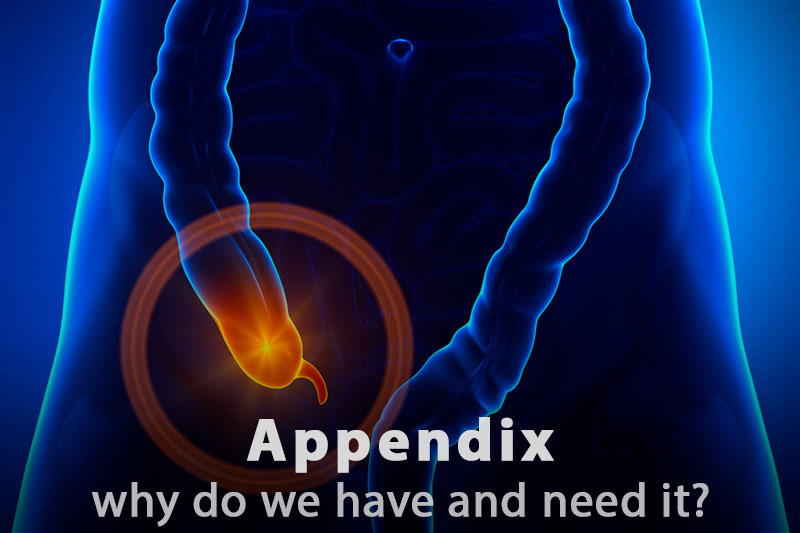The appendix is an unseen innate appendage that joins a human's blind intestine. Most people have trouble picturing its location and functions, though. Whereas it is well-known that the appendix can be life-threatening and even cause death. So why do humans need an appendix in the first place? Let's get study science and medicine experts' experiences to answer this and other arising questions.

The appendix is a body organ, a small remnant of the cecum, while appendicitis is a disease that causes swelling in the appendix and triggers different problems.
If not removed in time, it may likely become fatal. By and large, appendix removal is a pretty common surgery.
It features a good gut microbiome that promotes better digestion of food. The appendix itself does not contact food. Instead, it performs a protective function and is an integral part of the immune system.
The appendix was first detected in 1492 by the legendary and brilliant Leonardo da Vinci—in addition to art and engineering; he was a surgeon who depicted this remnant in his works. Unfortunately, then the academic circle took precious little notice of his discovery. Thus, it's laid dormant for centuries.
The first surgery to remove the appendix took place as soon as 1735. Claudius Amiand was a surgeon to undertake this case, and his patient was an 11-year-old boy. Strikingly, it was the hernia surgery they initially planned to carry out. But when they cut the abdomen, the surgeon found a pinched appendix there, which had already started festering. Right after its removal, the patient had a snapback.
In 1871, Charles Darwin insisted that the appendix was a vestigial organ. He believed human primates needed this process for digesting solid food. Moreover, Darwin's notes highlighted the appendix's two essential functions, one potentially losing its importance and the second proving its efficiency.
It is worth noting that the appendix is not indicative of all mammals. This is the privilege of humans, a few monkeys, and some species of rodents (rabbits, wombats, cavies). Cats and dogs, for example, do not have such an organ.
Normally, the appendix delivers no trouble, so you may even never know about its existence. But when it gets swollen, it becomes one of the most common stomach diseases—appendicitis. It starts with a dull and severe pain in the abdomen. But then things get worse. If not promptly treated, the result can be acute appendicitis and even peritonitis (peritoneal inflammation).
The inflamed appendix must be removed in 10–12 hours after the first strokes for adults and 3—4 hours for children! Otherwise, there is a high risk of death. Appendix removal is actually the most widespread operation, with about 70% of all surgeries!
But the truth is people are fuzzy about its inflammation origins. There are plenty of theories about it: some scholars blame a specific infection, others believe it's about poor nutrition, and some think it stems from hormone fluctuations. Anyway, none of these theories has been proven so far.
The appendix has been long considered nothing but a rudimentary organ. So if it is such an unhelpful troublemaker, why not remove it in advance then? It makes sense to prevent many people from future potential deplorable implications.
Thus, in the 30s of the 20th century, Germans first tried to do that and had been removing newborns' appendices for years. A little later—in the 60s — American doctors also decided to adopt this practice but had disappointing results. They found that babies without an appendix cannot properly digest their mother's milk. Also, these children were more likely to lag behind in development, take ill, fail to gain weight, and get digestive disorders in the future. It remained unknown then what exactly prompted such consequences.
Based on numerous observations, the staff of Duke University in the USA found out that the appendix contains a kind of reserve intestinal microflora.
Humans can correctly digest food and uptake its valuable nutrients thanks to special gut bacteria. If harmful microbes leak inside the gut, our body triggers an emergency discharge. This involves severe diarrhea that results in the elution of almost all gut bugs—whether these are harmful or beneficial.
So what to do in this case? Wait for the microorganisms to grow themselves? Not an option. Take drugs to rebuild the gut flora? This way has not been accessible up until recently. So how did people survive before then?
That's where the appendix comes into play. In case of major gut microflora loss, the appendix emits beneficial bacteria into the intestine. This encourages the gut's faster "contamination" with microflora and a person’s easier recovery. Hence, we need the appendix to save excess bacteria for a rainy day.
2017 marked an extra contribution to this remnant rehabilitation made by an international group of scientists. Experts have studied 533 species of different animals and discovered the following: those with an appendix have an advantage over those without it to build the immune system and quickly restore the gut microflora in case of its failure (which became one more proof of the theory).
There is definitely no need to remove the appendix without any reason. Moreover, one should take care of it and remember that the appendix helps the body bounce back after rough times. One of its functions has become a rudiment; it really did. Although, its second purpose keeps to be very effective and valuable for the body's health.
References: Links and sources